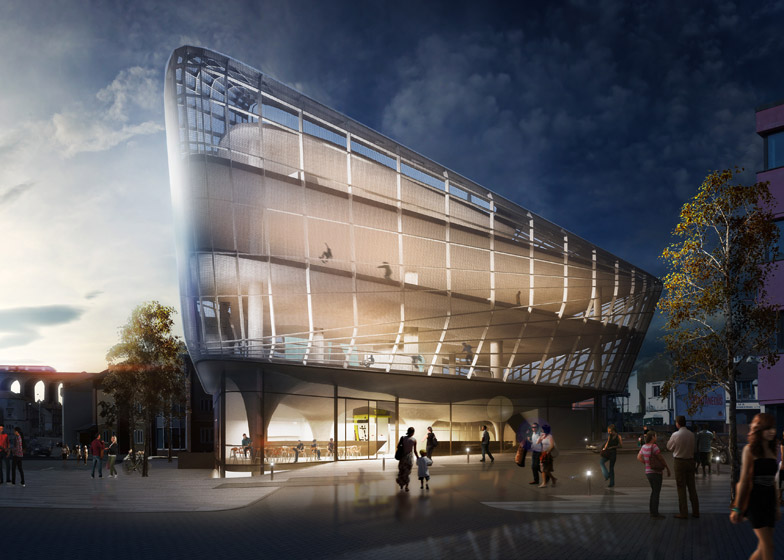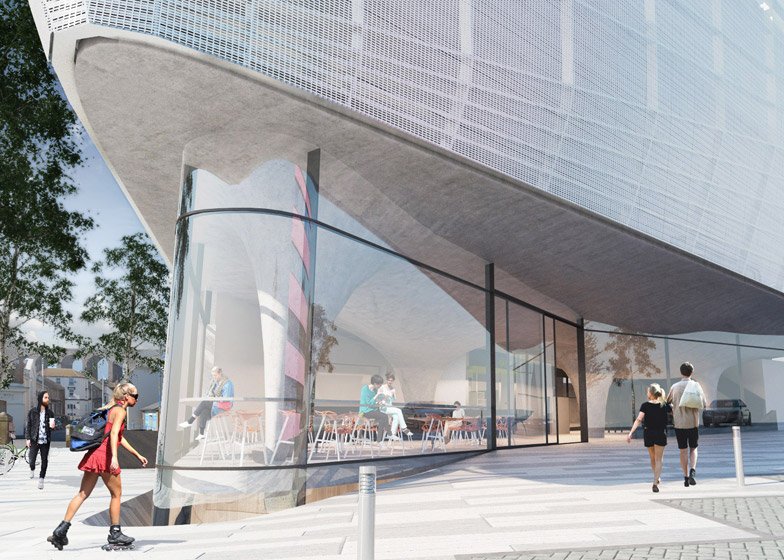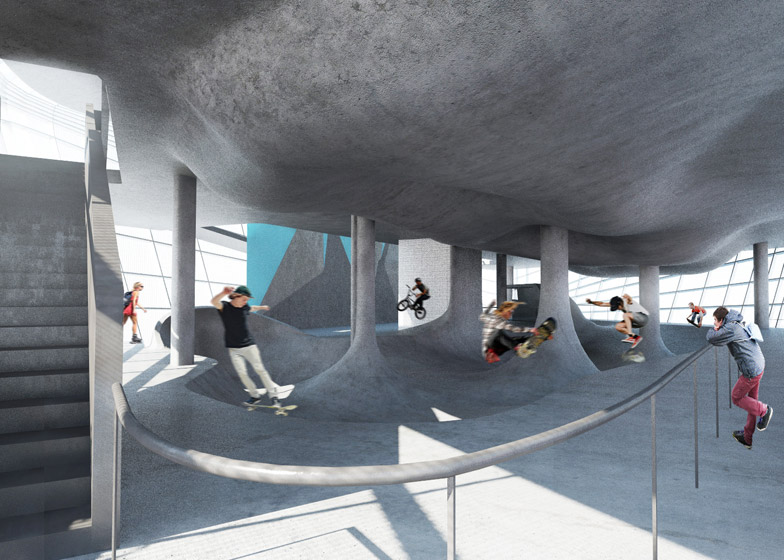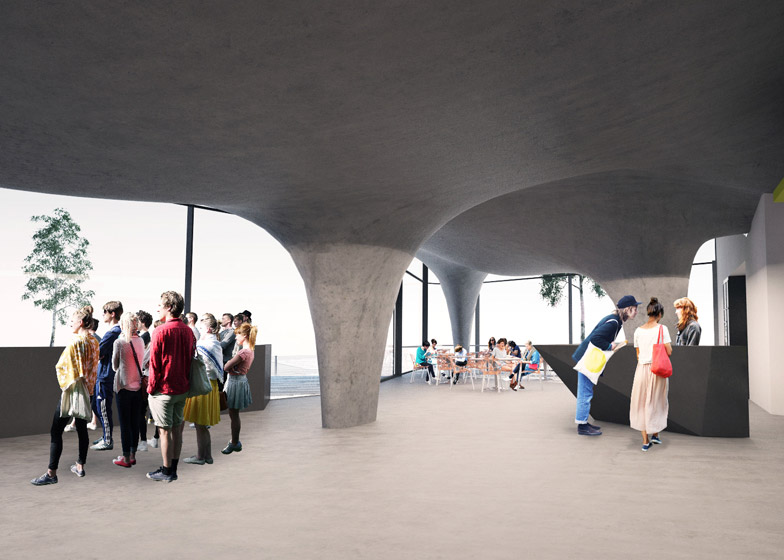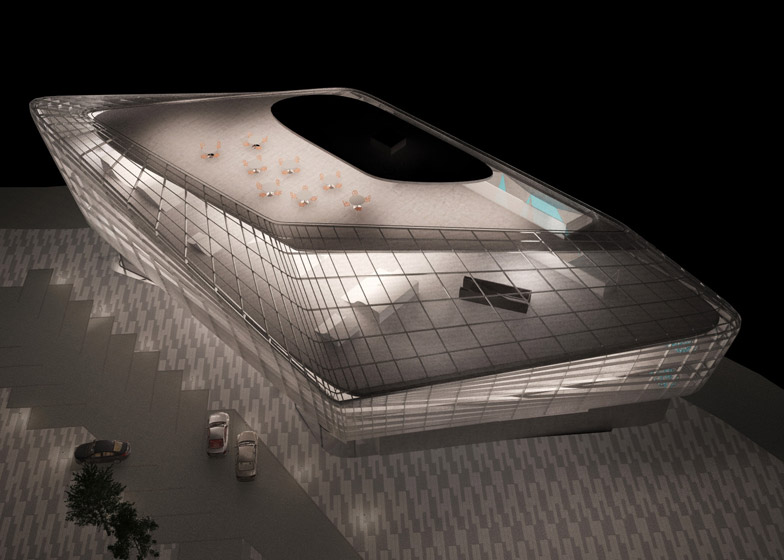British architect Guy Hollaway has unveiled plans for the "world's first" purpose-built multi-storey skatepark, which he says will help prevent young people from moving away from a sleepy British seaside town (+ slideshow).
Hollaway – who has offices in London and Kent – was commissioned by billionaire Roger De Haan to draw up plans for the sports centre, which he claims will be the first of its kind. Three concrete floors will provide a park for skateboarders and BMX riders, and there will be a boxing ring in the basement.
"We see this as an opportunity to put Folkestone on the map," Hollaway told Dezeen. "To the best of our knowledge this has never been done anywhere else in the world. It's really the first of its type."
The skatepark will sit on the site of an old bingo hall in the centre of Folkestone, a small seaside town in south-east Kent. The town has experienced a recent surge in popularity due to the success of the Folkestone Triennial, an arts festival where artists and designers make work for public spaces.
This prompted a huge regeneration plan for the town centre – masterplanned by Terry Farrell's London firm.
But Hollaway has bigger ambitions for the project than to just revitalise a once-failing town centre and provide a new sports facility. He wants the project to help prevent young people from moving away to the city.
"What we're trying to do is reverse engineer this brain drain," he explained.
"If you make childhood meaningful through education, sport, recreation then it's more likely that they'll invest in their town and the future and stay and maybe bring up their own children in that town – that is what true regeneration is about."
The project will be built to replace a former harbour-side skatepark, also owned by De Haan, which has been earmarked by Farrells for between 800 and 1,000 houses.
The new building will feature a giant bowl on the upper floor, allowing skaters and bikers to drop five metres down onto the level below, while ramps and a large industrial lift will be added for the less adventurous.
"It sounds dangerous doesn't it?" said Hollaway. "We're shrouding our children in what feels like rubber to protect them all the time, but I think – as the world becomes safer – a controlled adrenaline facility is what people will demand."
The three upper floors of the building will be veiled in metal mesh allowing maximum daylight and ventilation into the unheated space, while the ground floor will be wrapped in glass.
The undulating surfaces that provide ramps, moguls and ledges designed to allow skaters to perform tricks will be left exposed, creating a cave-like entrance hall supported by curving concrete columns.
"As you come in you'll see the belly of the bowl above you and hear the wheels of the skates above your head as well," added the architect. "The design of the park will create the ceiling below."
"It's just being completely honest about what goes on above and how it comes together."
The studio is collaborating with skatepark designers and "famous skaters" to develop a facility hoped to draw beginners as well as international talent. One idea is to replicate the best bits of the world's skateparks and transplant them inside the building.
An 11-metre-high climbing wall will span the upper floors, while a cafe, office and first-aid centre will occupy the ground floor. A local boxing club has been invited to take up residence in the basement.
A rooftop terrace will allow sweaty skaters, climbers and boxers to dry off in the cool sea air and to appreciate "incredible views over Folkestone and the English Channel". According to the architect, this feature is inspired by Frank's Cafe, a rooftop bar atop a multi-storey building in south-east London.
This isn't the first project Hollaway will work on for De Haan – his firm previously completed a seafood restaurant on the town's harbour.
This latest project will be submitted for planning permission in the next couple of months, with a view to complete by 2017 – just in time for the town's next triennial.

